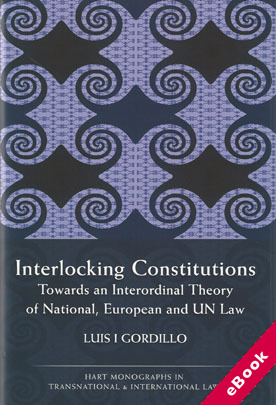We are now closed for the Christmas and New Year period, returning on Monday 5th January 2026. Orders placed during this time will be processed upon our return on 5th January.

The device(s) you use to access the eBook content must be authorized with an Adobe ID before you download the product otherwise it will fail to register correctly.
For further information see https://www.wildy.com/ebook-formats
Once the order is confirmed an automated e-mail will be sent to you to allow you to download the eBook.
All eBooks are supplied firm sale and cannot be returned. If you believe there is a fault with your eBook then contact us on ebooks@wildy.com and we will help in resolving the issue. This does not affect your statutory rights.
The existence of interactions between different but overlapping legal systems has always provoked challenges for the black letter law. This is particularly true of the relationship between international law and domestic law and the relationship between federal law and the laws of individual federation members. Moreover some organizations have created their own supranational constitutional systems: the United Nations Charter is the best known, and is often referred to as the 'World Constitution', but the European Court of Justice in Luxembourg views the European Treaties as 'Constitutional Charter' for Europe, while the European Court of Human Rights has defined the European Convention on Human Rights as a constitutional instrument of 'European public order'.
It is in the dynamic relationship between domestic constitutional laws, EU law, the ECHR and the UN Charter that the most persistent difficulties arise. In this context 'inter-ordinal instability' not only provokes strong academic interest, but also affects what has been called 'governance' or 'global government' and undermines both legal certainty and individual fundamental rights. Different solutions - constitutionalist and pluralist - have been explored, but none of them has received global acceptance. In this book Luis Gordillo Pérez analyses the inter-ordinal instabilities which arise at the European level, focusing on three main strands of case-law and their implications: Solange, Bosphorus and Kadi. To solve the difficulties caused by this instability Pérez proposes a form of soft constitutionalism, which he calls 'inter-ordinal constitutionalism', as a means to bring order and stability to global legal governance.